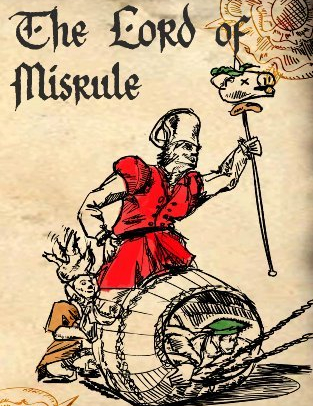Lord of Misrule: the presidency of Isaias Afwerki
2018-12-29 20:02:53 Written by Martin Plaut Published in English Articles Read 1745 times

There is an ancient European tradition of appointing a ‘master of misrule’ to conduct the celebrations around Christmas and New Year. He was probably a rather jolly figure: sadly the same cannot be said for the Eritrean president. But one thing seems certain – he is someone who thrives on misrule.
Consider this. When Prime Minister Abiy made his pathbreaking visit to Asmara in June this year he received a raptuous reception. Then President Isaias made a similar visit to Addis Ababa. Since then there have been a series of meetings involving Ethiopia, Eritrea and Somalia. It seemed for a moment that a new era of peace might be dawning.
Peace brings its challenges
But peace might be more difficult for President Isaias than crisis and confrontation.
Without an external threat, why continue indefinite national service in Eritrea? Tens of thousands of young men and women might return to their communities. What work would be found for them and what would happen if they discovered that their future was still bleak?
If there was no threat from Ethiopia pressure would increase for constitutional rule in Eritrea. The National Assembly could be recalled and there would be pressure for the country to hold its first ever elections.
There would also have to be the transfer of border communities all along the Eritrea-Ethiopia border, to conform to the new boundary established between the two countries.
These prospects would have been deeply troubling for President Isaias, who is a past-master at manipulating situations when they are complex, difficult and in crises. Peace and stability would be an entirely new situation for him.
Crises return
Luckily for the president, events have come to his aid.
Ethiopia is in turmoil, with vast numbers of people forced to flee as ethnic groups jostle and fight for their rights as the authoritarian rule from the centre weakens.
The Tigrayans – once such solid allies of Eritreans – are facing threats as their lands are challanged. The TPLF, with whom the EPLF fought side by side to overthrow the Derge, are in real trouble with their neighbours. There is a return to the old hostilities that once set the TPLF and EPLF apart, with the Eritrean authorities now gloating about the problems that beset their southern neighbours.
Meanwhile, Sudan, which closed its border with Eritrea earlier this year, is also in the throes of a crisis.
So President Isaias can end the year quietly satisfied. He has neighbours in crises. He can argue that Eritrea is still facing threats from abroad and cannot afford to relax. Vigilance and patriotism must – once more – trump human rights and democracy.
All this is likely to be reflected in his anticipated New Year’s message.
But who knows? Perhaps this is quite wrong and President Isaias will anounce a programme of radical reform and renewal. The Constitution will be enacted, opposition parties will be allowed to return to the country, political prisoners and journalists liberated from the dungeons in which they languish and free and fair elections will be held.
I am not holding my breath.
We might conclude by recalling a poem of the great Alexandrian, C.P. Cavafy.




















